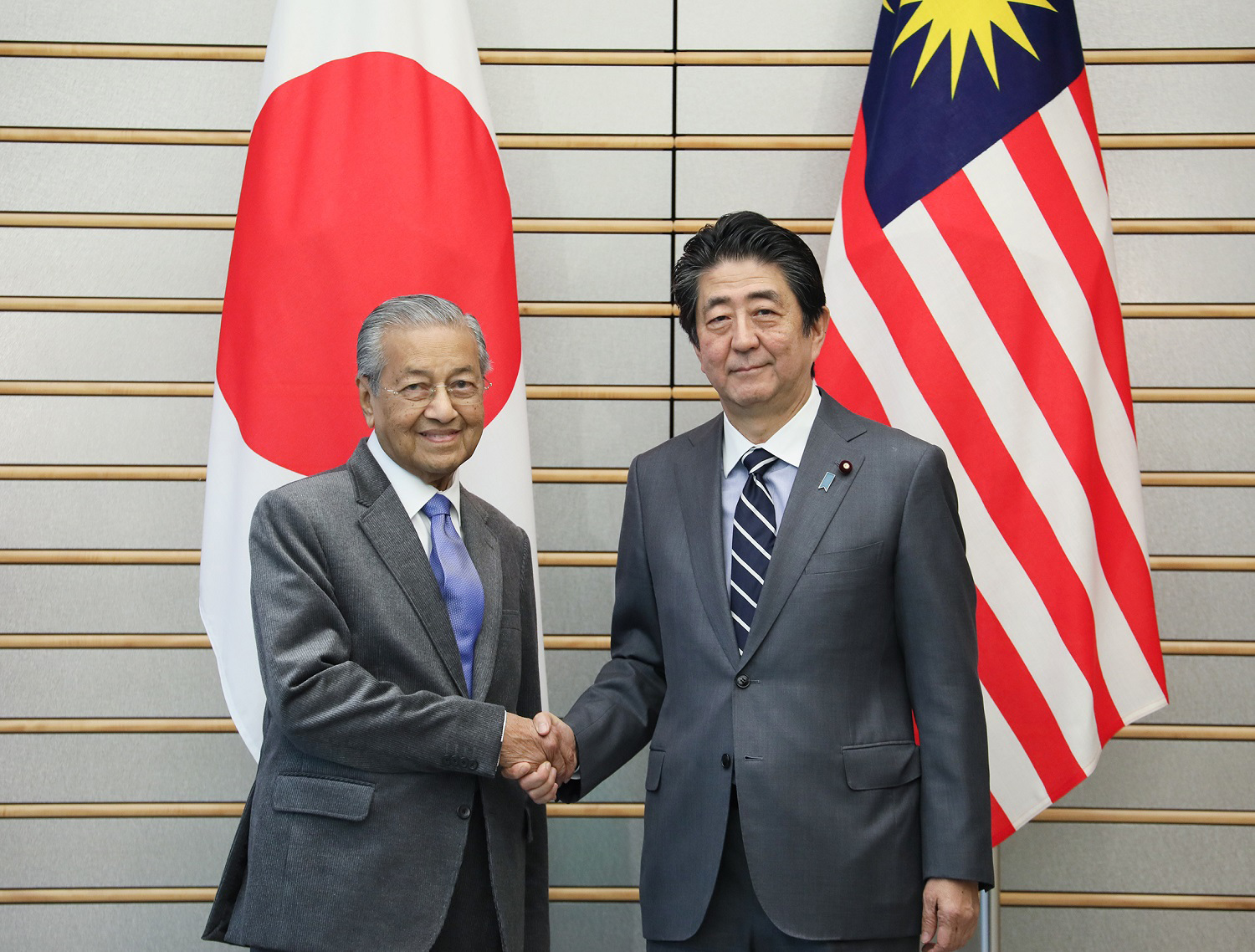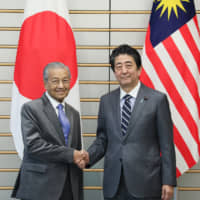
The Look East Policy 2.0 (LEP 2.0) is an important initiative that paves the way for greater collaboration between the two countries. Both governments hailed the efforts and contributions made since the first Bilateral Coordinating Committee meeting in 2016 and successful discussions on the ongoing and future projects under the LEP 2.0 platform. The projects under the LEP 2.0 include the special preparatory program for Malaysian government scholarship students, the LEP 2.0 training program, science and technology research partnership and bilateral cooperation projects.
One of the notable projects under the LEP 2.0 would be Capacity Building on End of Life Vehicles under the collaboration between Malaysia Automotive Robotics and IoT (internet of things) Institute and the Japan International Cooperation Agency. Malaysia and Japan will continue cooperation in skills training of local talent in order to bridge the skills gap in the areas of automotive and automation.
Japan is one of Malaysia's largest trading partners. Last year, the total amount of bilateral trade between our two economies reached Malaysian ringgit 134.24 billion ($33.28 billion) in 2018. In 2018, Japan was Malaysia's fourth-largest trading partner and Malaysia was Japan's 14th largest trading partner. Meanwhile, in the period from January to September, Malaysia and Japan recorded total trade of RM95.59 billion ($23.12 billion).
Further cooperation can be forged between Malaysia and Japan on greater levels in the future. The strategic location of Malaysia and the well-diversified economy resting on the back of solid economic fundamentals make it a very important hub for the whole of Southeast Asia. With the region's economy forecast to become the world's fourth largest by 2030, Japanese firms are in a great position to benefit across a wide range of sectors within the region such as aerospace, medical devices, artificial intelligence, renewable energy, chemical and petrochemical, e-commerce, blockchain technology and the halal industry.
In enhancing Malaysia-Japan trade and economic collaboration, The Japanese Chamber of Trade & Industry, Malaysia has been playing an important role in continuously promoting economic relations between Malaysia and Japan, as well as overseeing the Japanese companies in Malaysia.
In anticipation of the upcoming 2020 Tokyo Olympic and Paralympic Games, 5 million Muslim tourists are expected to visit Japan. Taking into consideration the high demand of halal products and services, Malaysia has introduced the Digital Trade Halal Value Chain Initiative through Public-Private Partnership. Malaysia hopes both countries can leverage the potential opportunities in the halal industry under the idea of "Malaysian standards, Japanese quality."
The current collaboration with the Japanese industry consortium is focusing on upgrading the knowledge of management of small and midsized enterprises (SMEs) on basic production techniques relating to "Industry 4.0," creating successful use cases, commercialization of smart technologies and undertaking business matching between Japanese suppliers and SMEs.
Malaysia is committed to undertaking digital transformation efforts, among others, through the National e-Commerce Strategic Roadmap policy, as well as through engagements at the international level. To capitalize on this, Japanese investors can apply for MSC (Multimedia Super Corridor) Malaysia status that provides eligible information and communication technology-related businesses, both local and foreign, with a wide range of incentives, including tax exemption, services, IP incentives, rights and privileges, to promote continuous growth. As of 2018, there were around 41 active Japanese MSC status companies in Malaysia with a total investment of RM732 million ($173.73 million).
On top of this, Japanese investors should explore collaborations with Malaysian companies that have access to the Domestic Investment Strategic Fund (DISF) of RM1 billion (approximately $240 million). The DISF was established to accelerate the shift of Malaysian-owned companies in targeted industries to high value-added, high-tech, knowledge-intensive and innovation-based industries.
With the rapid development of e-commerce globally, it is timely that the e-commerce chapter is being negotiated in the Regional Comprehensive Economic Partnership. E-commerce has opened up tremendous opportunities for Malaysia and Japan to tap into, with 330 million internet users in countries that make up the Association of Southeast Asian Nations (ASEAN). Additionally, ASEAN's digital economy is estimated to exceed $240 billion by 2025.
The Ministry of International Trade and Industry of Malaysia will undertake the Trade and Investment Mission to Japan from Nov. 29 to Dec. 5. It aims to enhance bilateral economic and trade relations between Malaysia and Japan. It reflects Malaysia's commitment to provide pro-business, prudent and pragmatic trade policies that provides benefits to both countries. Additionally, this mission provides a great opportunity for both sides to explore further collaboration across many sectors.



















With your current subscription plan you can comment on stories. However, before writing your first comment, please create a display name in the Profile section of your subscriber account page.